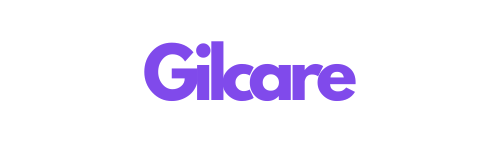Accidentally ate before glucose test! The words I texted my doctor at 7:23 AM while staring at the empty Pop-Tart wrapper on my counter, the sugary evidence still clinging to my lips as my 9:00 AM appointment loomed. My brain had been on autopilot—reach for breakfast, eat breakfast—a routine so ingrained that the “DO NOT EAT” sticky note on my refrigerator might as well have been invisible. That frosted strawberry mistake launched me into what I now call the “glucose test crisis spiral.” One minute I was enjoying my breakfast, the next I was frantically Googling “how bad is eating before glucose test” while simultaneously calculating if I had time to reschedule before my insurance pre-authorization expired. Let’s be honest—fasting tests are basically an invitation for your body to rebel.
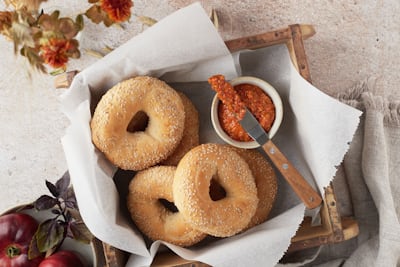
Your stomach growls in waiting rooms. Your brain fog makes you forget why you’re even at the lab. And somehow, the one morning you need to skip food is the morning your neighbor decides to bake cinnamon rolls with the windows open. If you’ve just realized you’ve sabotaged your own test with an accidental snack, you’re not alone. This mix-up happens so often that lab technicians have seen everything from the “I forgot my test was today” folks to the “I thought gum didn’t count as eating” crew. Let’s talk about what this means for your test and what real options (not panic options) you have now.
Table of Contents
Understanding the Impact: When Breakfast Meets Your Blood Test
The moment I bit into that bagel, time seemed to slow down. Chew, swallow, realization, panic. Forty seconds into enjoying my everything bagel with cream cheese, my brain finally caught up—”Wait, today’s my glucose test!”
Why Fasting Isn’t Just Lab Drama
Fasting before a glucose test isn’t some arbitrary torture method invented by healthcare providers. It serves a real scientific purpose. Your body is constantly processing sugars from food, causing your blood glucose levels to rise and fall throughout the day like a sugar-fueled roller coaster. When doctors want to check how your body handles glucose, they need a clean baseline—like testing how well a car runs before you fill it with gas, not while it’s already burning fuel. When you accidentally introduce a Pop-Tart (or in my case, a bagel) into the equation, you’re essentially showing up to a “How fast can your car go from standstill?” test with the engine already revving.
What Actually Happens When You Eat Before the Test
Let me break down what happens in non-doctor speak: That innocent piece of toast sends your blood glucose soaring, especially if it’s carb-heavy. For a fasting glucose test, this is like bringing a cheat sheet to an exam—it completely invalidates the results. Your numbers will read artificially high, potentially making you look like you have prediabetes or diabetes when you don’t. Talk about a false alarm!For an oral glucose tolerance test (that fun one where they make you drink the syrupy concoction), eating beforehand is even more problematic. The test is designed to see how your body responds to a specific glucose challenge from zero to sixty. If you’ve already got glucose circulating from your accidental breakfast, the test can’t accurately measure your body’s true response pattern.
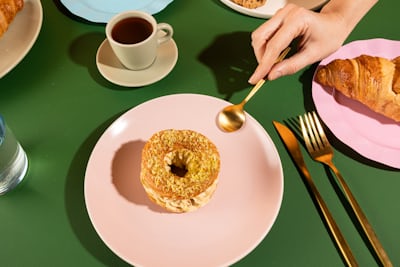
The “But I Only Had…” Scenarios”
“But I only had black coffee!” Sorry, even though it has zero calories, caffeine can affect insulin sensitivity.”But it was just a tiny piece of gum!” Mint gum might seem innocent, but many contain sorbitol or other sweeteners that can impact results.” But I just took a sip of my kid’s juice!” Even small amounts of sugar-containing liquids can throw off your numbers.In my defense, no one tells you how easy it is to operate on morning autopilot. One minute you’re sleepily shuffling to the kitchen, the next you’re halfway through a yogurt parfait before your brain’s “STOP EATING” alarm finally sounds. We’ve all been there—operating on muscle memory until that stomach-dropping moment of clarity hits.The question now isn’t about what you did (we’ve established that—you ate), but what you’re going to do next. And trust me, it involves more options than just dramatic self-criticism in your car outside the lab.
Next Steps After Eating
So there I was, bagel crumbs still on my shirt, experiencing what can only be described as a glucose test guilt spiral. But after the initial panic subsided, I realized I needed a plan. If you’re in the same boat right now, take a deep breath—this isn’t medical armageddon.
Immediate Actions to Take
First thing: call your doctor’s office or lab. Don’t try to “wait it out” hoping the food will magically disappear from your bloodstream. I made this call from my kitchen, still holding the offensive bagel, and the receptionist’s lack of surprise told me everything—this happens all the time. Be specific when you call. Tell them exactly what you ate, how much, and when. “I accidentally ate half a bagel with cream cheese about 20 minutes ago” is much more helpful than “I messed up my fast.”

Pro tip: Save yourself the shame spiral. The medical staff genuinely don’t care that you messed up—they just need the information to decide next steps.
When to Reschedule vs. When to Proceed
Here’s where honesty pays off. For a standard fasting glucose test, you’ll almost certainly need to reschedule. My doctor’s office had me come back two days later. The good news? Most labs can fit you in quickly since these tests are brief. For specialized tests like the three-hour glucose tolerance test for gestational diabetes, rescheduling is non-negotiable. However, if you’re doing A1c testing (which measures average blood sugar over months), your morning muffin won’t impact results, and you might still proceed.
The Awkward But Essential Conversation
When I called my doctor, I tried to explain my elaborate excuse about morning autopilot and sticky notes that failed me. The nurse cut me off with merciful efficiency: “Would you like to reschedule for Thursday or Friday?” The conversation you need to have isn’t about why you ate—it’s about ensuring you get accurate results. Your healthcare provider needs to know:- Exactly what and when you ate- Whether you’re on any medications that can’t be delayed- If rescheduling creates any hardships (like expiring insurance authorizations)
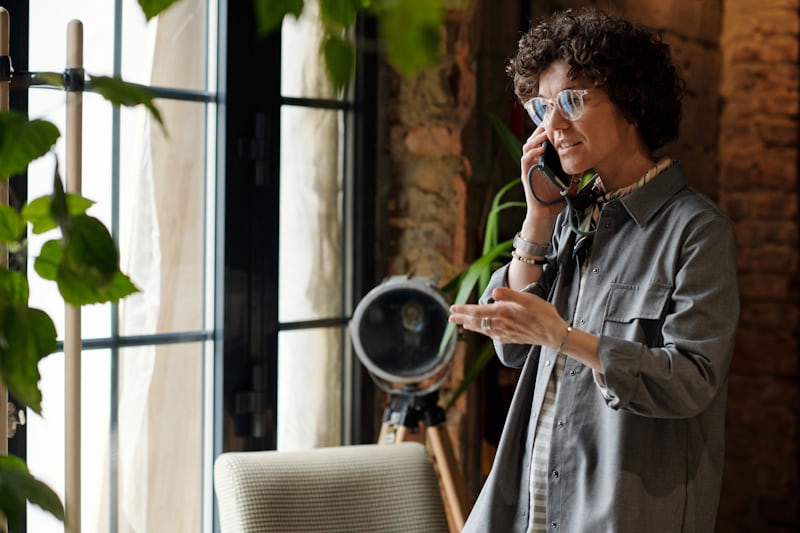
Remember: they want accurate results as much as you do. Sometimes they might even suggest modified testing approaches depending on your situation.The accidental pre-test snack club has many members. The only real mistake isn’t the eating—it’s not being upfront about it and potentially getting inaccurate health information as a result.
Types of Glucose Tests and Eating Effects
The morning I realized I’d demolished a bagel before my glucose test, I frantically Googled which test I was even supposed to be taking. Was it the “drink the syrupy stuff” test? The “just take my blood” test? The “sit here for three hours while we repeatedly stab your arm” test? Turns out, knowing which test you’ve accidentally sabotaged matters almost as much as the sabotage itself.
Fasting Glucose: The Baseline Check
A fasting glucose test is like checking your car’s idle speed. It’s measuring how your body handles glucose when there’s no new fuel coming in—your baseline blood sugar after at least 8 hours without food. When I ate that bagel before my fasting test, I essentially flooded my engine with fuel right before the mechanic checked the idle. The carbs quickly broke down into glucose, sending my levels soaring way above my true baseline. What should have been a simple snapshot became a funhouse mirror reflection.
The damage: Usually adds 20-40 mg/dL to your results, potentially pushing you from “normal” territory into “prediabetic” land. For perspective, that’s the difference between your doctor saying “looking good!” and “we need to talk about your blood sugar.”
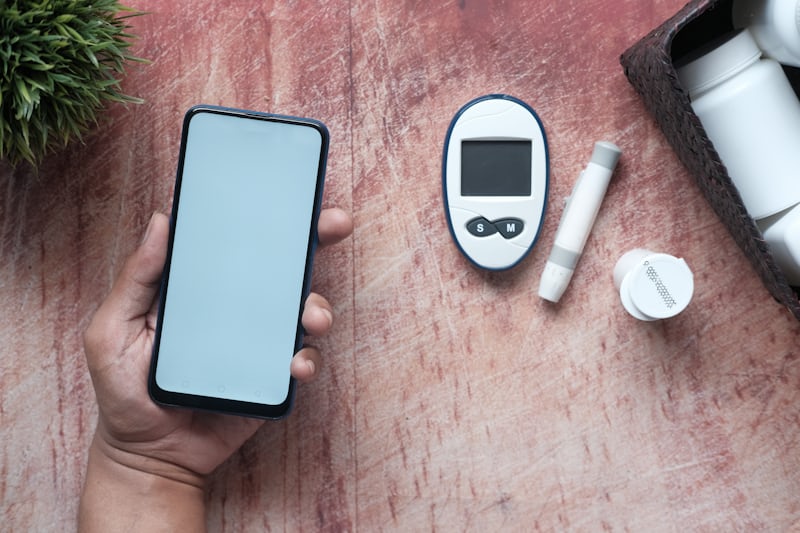
Oral Glucose Tolerance Test: The Ultimate Betrayal
The OGTT (that delightful test where they make you drink what tastes like flat Sprite mixed with liquid sugar) is designed to see how efficiently your body processes a standardized glucose bomb.Eating before this test is like spiking your own football on the 5-yard line.
Here’s why: The test assumes you’re starting from zero and then tracking how your body handles exactly 75 grams of glucose. If you’ve already eaten, you’re not starting from zero, and those serial blood draws over the next 2-3 hours will track your response to both the test drink AND whatever you ate.The result? Completely uninterpretable data that tells your doctor precisely nothing about how your body actually handles glucose challenges. When my friend did this before her gestational diabetes test, they didn’t even try to salvage the results—immediate reschedule, no questions asked.
HbA1c Test: Your Lucky Break
If you’re getting an HbA1c test and ate beforehand, you can stop panicking entirely. This test measures your average blood glucose over the past 2-3 months by checking how much glucose is attached to your hemoglobin. Your morning muffin won’t affect three months of data. This is the rare “I ate before my test” scenario where you can proceed directly to the lab, food guilt-free. It’s like worrying that today’s haircut will affect your height measurement—completely unrelated systems.
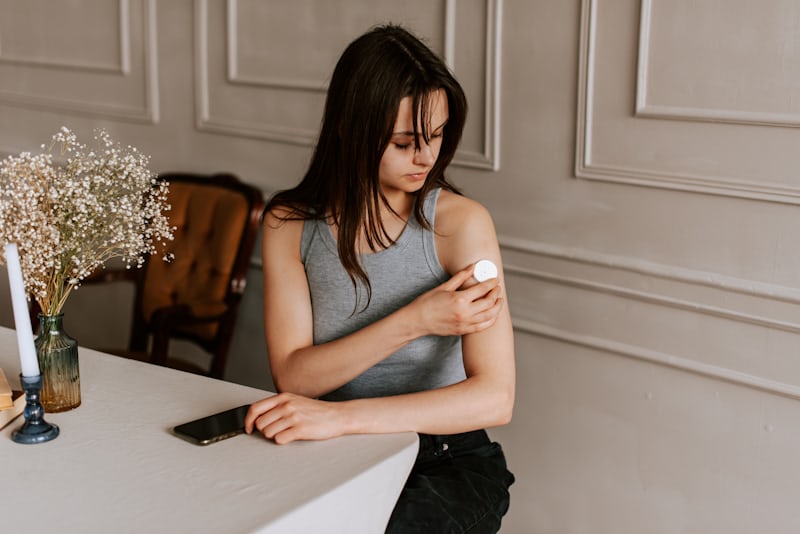
The Varying Fasting Requirements Nobody Explains
Here’s what confused me most: different tests have different fasting rules. Standard fasting glucose test: 8-12 hours, usually overnight Oral glucose tolerance test: 8-14 hours, sometimes with dietary prep days beforehand Lipid panel (often done with glucose): 9-12 hours, but water is fine A1C test: No fasting required (praise be!)
The lab rarely explains these distinctions when they robotically tell you to “fast before your test.” No wonder we get confused about whether coffee counts (it does) or if medication is allowed (depends on the medication). My personal test disaster taught me to ask specifically: “How many hours should I fast before this particular test?” and “Does that mean absolutely nothing by mouth, or are there exceptions?” Getting these details straight is the difference between useful medical data and a wasted morning at the lab.
When it comes to glucose testing, what you don’t know can definitely hurt your results—and potentially lead to unnecessary follow-up testing or even misdiagnosis. And let’s be honest—nobody wants extra needles or medical bills because of a momentary breakfast brain-lapse.
Prevention Strategies: Outsmarting Your Morning Self
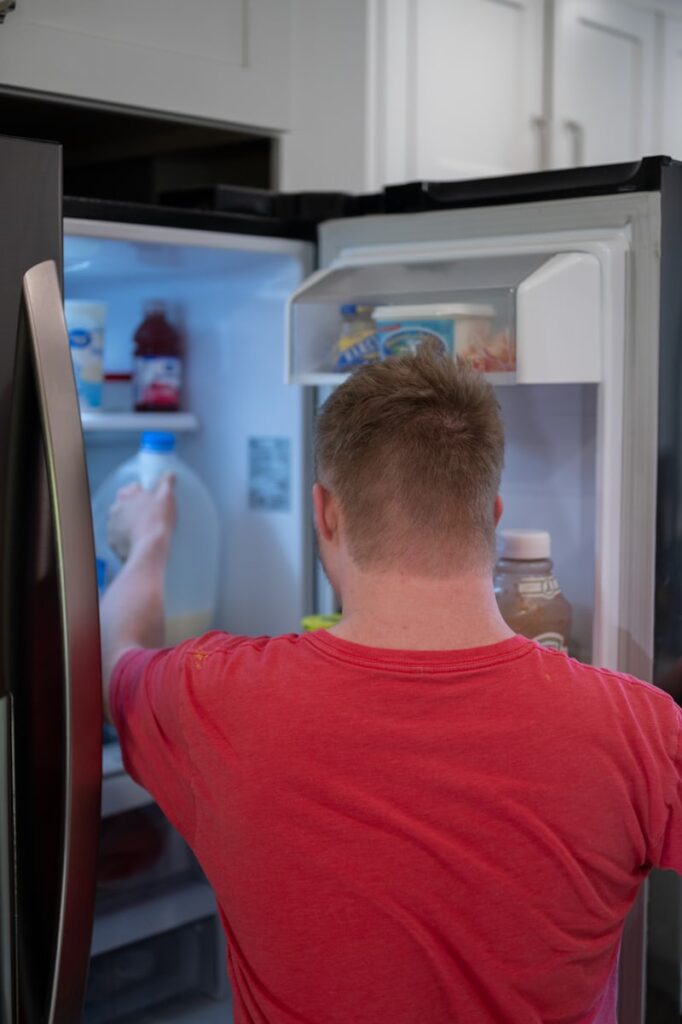
The day after my glucose test fiasco, I realized something important: Future Me needed protection from Morning Zombie Me. Morning Zombie Me has one job: Find coffee. Find food. Consume. She cannot be trusted with medical instructions.
Setting Reminders That Actually Work
Standard calendar alerts aren’t enough for fasting tests. My new system involves:- Changing my phone alarm label to “NO FOOD – GLUCOSE TEST”- Putting a neon sticky note on my coffee maker the night before- Setting a second alarm 30 minutes before I normally eat- Texting my partner to remind me not to eat when they leave for work
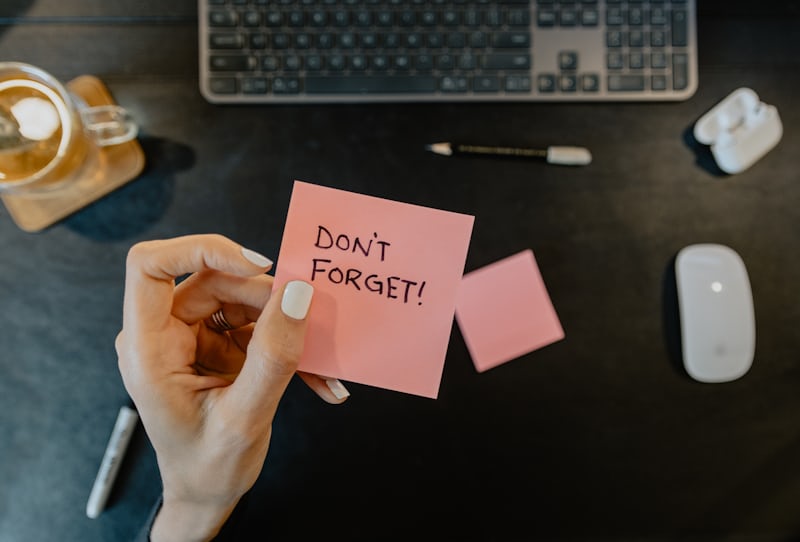
Overkill? Perhaps. But Morning Zombie Me needs multiple barriers between her and accidental breakfast destruction.I’ve also started scheduling all fasting labs for early morning slots—8 AM if possible. The math is simple: Less time awake = fewer opportunities to accidentally eat. My 11 AM appointment practically guaranteed failure since it meant navigating my entire morning routine while hungry.
Managing Morning Routines on Test Day
Routine is both your greatest enemy and potential ally on test day. My automatic breakfast-making routine betrayed me, but a modified routine saved my rescheduled test.
The night before:
- Remove visual food triggers (fruit bowl goes in the fridge).
- Pre-fill a water bottle (staying hydrated helps with hunger).
- Lay out clothes so you’re not rummaging around hangry

Morning of:
- Plan a non-food activity for when you’d normally eat (shower, walk, anything)
- Brush your teeth immediately after waking (makes food less tempting)
- Stay out of the kitchen entirely if possible
The Medication Conundrum
“Take with food” medications pose a special challenge for fasting tests. When I called to reschedule my test, the nurse gave me this invaluable advice: Ask your doctor specifically about each medication.Some need to be taken regardless of fasting (blood pressure meds, thyroid medications). Others can be delayed until after the test. A few might require special scheduling of your lab work.
The key is having this conversation before your test day—not while standing in your kitchen debating whether your medication or your fasting is more important. My accidental breakfast taught me that preventing test disasters isn’t about willpower—it’s about systems. Morning Zombie Me will always reach for food on autopilot. The trick is making sure he encounters enough roadblocks to wake up Regular Me before the damage is done.
Questions to Ask Your Healthcare Provider
After my glucose test debacle and emergency rescheduling, I arrived at my second appointment armed with something more powerful than willpower: actual information. Turns out, having a real conversation with your healthcare provider about glucose testing can prevent panic-texting them at 7 AM about accidental Pop-Tarts.
Understanding Your Specific Test Requirements
Not all glucose tests follow identical protocols, and the generic “don’t eat before your test” instructions leave too much room for interpretation. Next time, I’m asking:- “How many exact hours should I fast before this specific test?”- “Does fasting mean no water too, or just no food?”- “What about medications, toothpaste, or sugar-free gum?”- “If I mess up the fast, how long do I need to wait before trying again?”

When I finally asked these questions, I discovered that my particular test allowed black coffee (no cream or sugar) and required only 8 hours of fasting—not the 12 hours I’d been torturing myself with. Knowledge is power, especially when that knowledge lets you have coffee.
Options for Those Who Can’t Fast
Some medical conditions make fasting genuinely dangerous. Certain diabetes medications, pregnancy complications, or other health issues might mean traditional fasting tests aren’t safe for you.Instead of suffering through a fast that could harm you, ask:
- “Are there alternative testing methods for people who can’t safely fast?”
- “Could we use an A1c test instead, which doesn’t require fasting?”
- “Is there a modified fasting protocol that would be safer for my condition?”

My friend with hypoglycemia discovered her doctor could order a different testing sequence that involved shorter fasting periods—but only after she specifically asked about alternatives.
When Results Might Still Be Usable
Sometimes your accidental pre-test snack doesn’t completely invalidate your results. When I called about my bagel incident, I learned that:- If you’ve eaten something very small or just had black coffee, some doctors will note this and interpret results accordingly- If you’re monitoring known diabetes rather than screening for diagnosis, the non-fasting results might still provide useful information- If you’ve eaten but it’s been several hours, your doctor might consider using the results with appropriate contextThe key is absolute honesty about what and when you ate. Your healthcare provider can’t properly interpret results without this information, and trying to hide your dietary slip-up only hurts your own care.
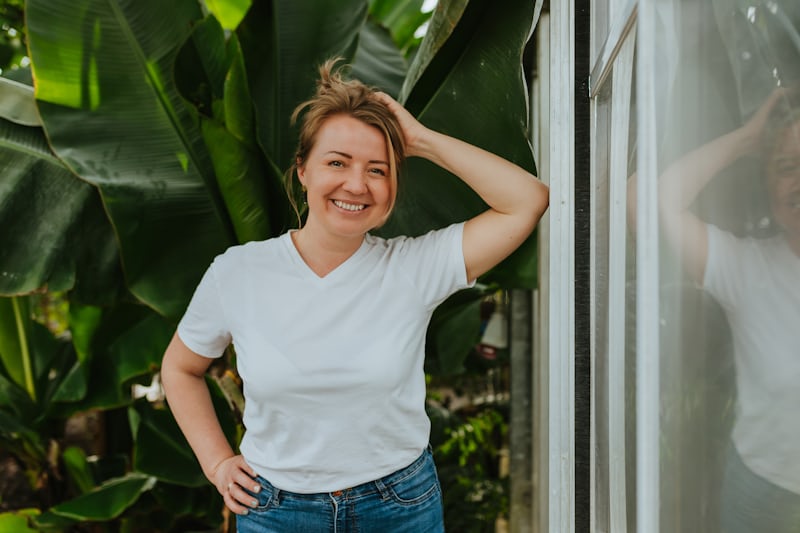
My glucose test adventure taught me that the most important lab preparation isn’t fasting—it’s communication. Healthcare providers run these tests thousands of times; they’ve seen every possible scenario of accidental eating and know exactly how to handle each one. The only real test failure is the one where you don’t speak up about what happened.So the next time you find yourself staring at an empty cereal bowl in horror on test day, take a deep breath, pick up the phone, and remember: you’re definitely not the first person who’s done this today.
